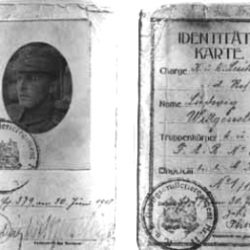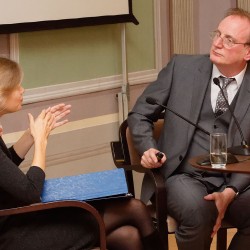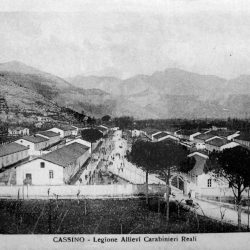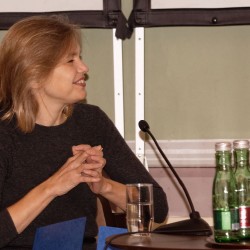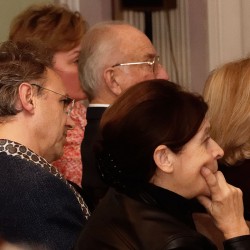Ludwig Wittgenstein, the Great War and the Unsayable
Ludwig Wittgenstein enlisted into the Austrian army in 1914, hoping that the experience of facing death would have a profound effect on his character. His hopes were realised. The Wittgenstein that returned home in 1919 was a different man to the one who had enlisted in 1914.
The change extended also to his philosophy. He had, as Bertrand Russell put it, transformed into a ‘complete mystic’. This mysticism appears in his book, Tractatus Logico-Philosophicus in the last few pages, in which he emphasises the importance of ‘the unsayable’.
This talk explored Wittgenstein’s notion of the unsayable and tried to place it in context, both in terms of the rest of his philosophical thinking and in terms of his life and its historical and cultural background.
Ray Monk
Ray Monk is a British philosopher and Professor of Philosophy at the University of Southampton, where he has taught since 1992. He won the John Llewellyn Rhys Prize and the 1991 Duff Cooper Prize for Ludwig Wittgenstein: The Duty of Genius. Monk is also author of Bertrand Russell: The Spirit of Solitude & The Ghost of Madness. His interests lie in the philosophy of mathematics, the history of analytic philosophy, and philosophical aspects of biographical writing. His biography of Robert Oppenheimer was published in 2012.
Bethany Bell
Bethany Bell has worked as a BBC Foreign Correspondent since 2001. Based in Vienna, she has reported for the BBC in over 25 countries, in Europe, the United States and the Middle East.
Date: Tuesday, 11 November 2014
Start: 19:00
Ending appr.: 20:30
Location: Theatersaal, Austrian Academy of Sciences, 1010 Vienna

